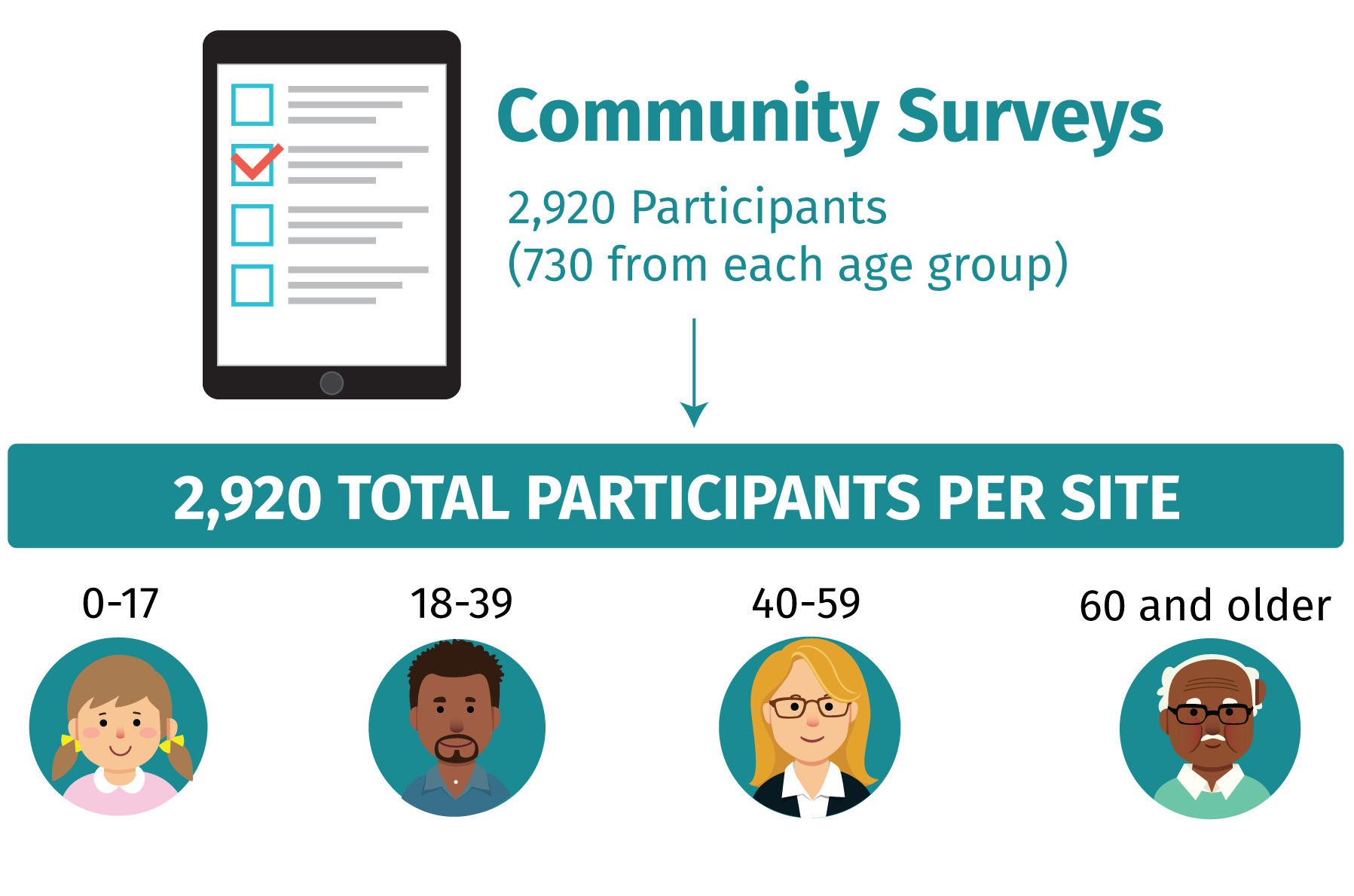[Updated September 2021]
1. What is The COMPASS Study (CoVPN 5002)?
The COMPASS Study – Community Prevalence of SARS-CoV-2 Study – is a study to estimate the number of people who currently have or have previously had SARS-CoV-2 infection in select communities in the United States. SARS-CoV-2 is the virus that causes COVID-19.
2. When and where will the COMPASS Study be done?
The COMPASS Study is taking place in Atlanta, Aurora, Baltimore, Chicago, Cincinnati, Houston, Miami, New Orleans, New York, Newark, Philadelphia, Pittsburgh, and Ponce (PR). See sites here.
3. Why is the COMPASS Study being done?
The COVID-19 pandemic continues to impact different regions and diverse populations differently across the United States. The impact of COVID-19 has generally had a greater impact on Black/African American, Latinx, and American Indian/Alaska Native communities. These communities have experienced more severe disease and deaths compared to any other racial or ethnic groups in the United States.
The COMPASS Study will provide information on communities impacted by COVID-19, including:
- The number of people (at least 2 months old) who have SARS-CoV-2 or had a prior SARS-CoV-2 infection
- How children may or may not impact the spread of SARS-CoV-2
- The impact of other medical conditions on people who have SARS-CoV-2
- Demographic (characteristics about groups of people) and social risk factors (housing instability, food insecurity, etc.) associated with SARS-CoV-2 infection
- Knowledge about, attitudes and practices on COVID-19 and public health measures to deal with COVID-19 in the community
- Racial and ethnic health disparities including access to testing and other public health resources
4. How many people will be in the study and who can join?
The study enrolled approximately 26,000 people. Participants were recruited from assisted living and skilled nursing facilities, outpatient health care facilities, and neighborhoods close to the selected community. The majority of participants were recruited at random from specific locations in each community, such as near a grocery store, using a technique called time-location sampling (TLS). The goal of this method, which is sometimes called venue-based sampling, was to enroll children and adults who, as a group, were very similar to the population of the community.

5. What happened during the COMPASS Study?
Participants who consented to join the COMPASS Study answered some questions, provided a small amount of blood (about 2 teaspoons) for antibody testing, and could choose to collect their own mid-nasal swab or have a study staff member collect the swab for SARS-CoV-2 diagnostic testing. The blood test (antibody) results were returned but participants were told how to obtain their nasal swab diagnostic test results. Participants in the COMPASS Study were compensated for their time.
6. What happened to participants with a positive nasal swab test result for SARS-CoV-2?
Participants with a positive SARS CoV-2 nasal swab test result received counseling about isolation and referral to care if needed. They were also reminded of any regulatory requirements to inform local health authorities for follow-up and contact tracing.
7. When did the COMPASS Study begin enrolling people and when will results be available?
The COMPASS Study started enrolling participants in October 2020. Results are expected late-2021.
8. What organizations are involved in the COMPASS Study?
The COMPASS Study is being implemented by the COVID-19 Prevention Network (CoVPN). The CoVPN was formed by the National Institute of Allergy and Infectious Diseases (NIAID) at the U.S. National Institutes of Health to respond to the global pandemic. Using the infectious disease expertise of their existing research networks and global partners, NIAID has directed the networks to address the pressing need for vaccines and monoclonal antibodies (mAbs) against SARS-CoV-2. The CoVPN is comprised of the HIV Vaccine Trials Network (HVTN), the HIV Prevention Trials Network (HPTN), the Infectious Diseases Clinical Research Consortium (IDCRC), and the AIDS Clinical Trials Group (ACTG).
For more information on the COVID-19 Prevention Network, please visit PreventCOVID.org.